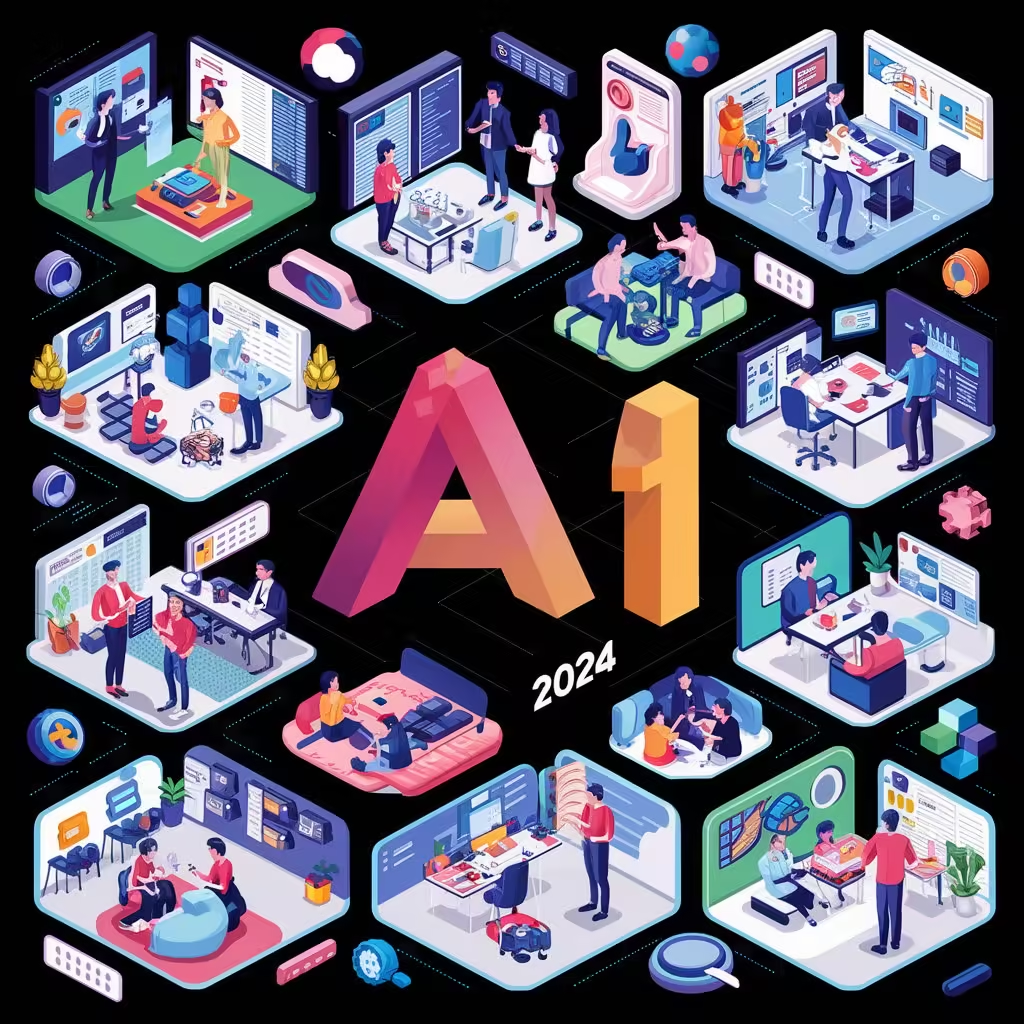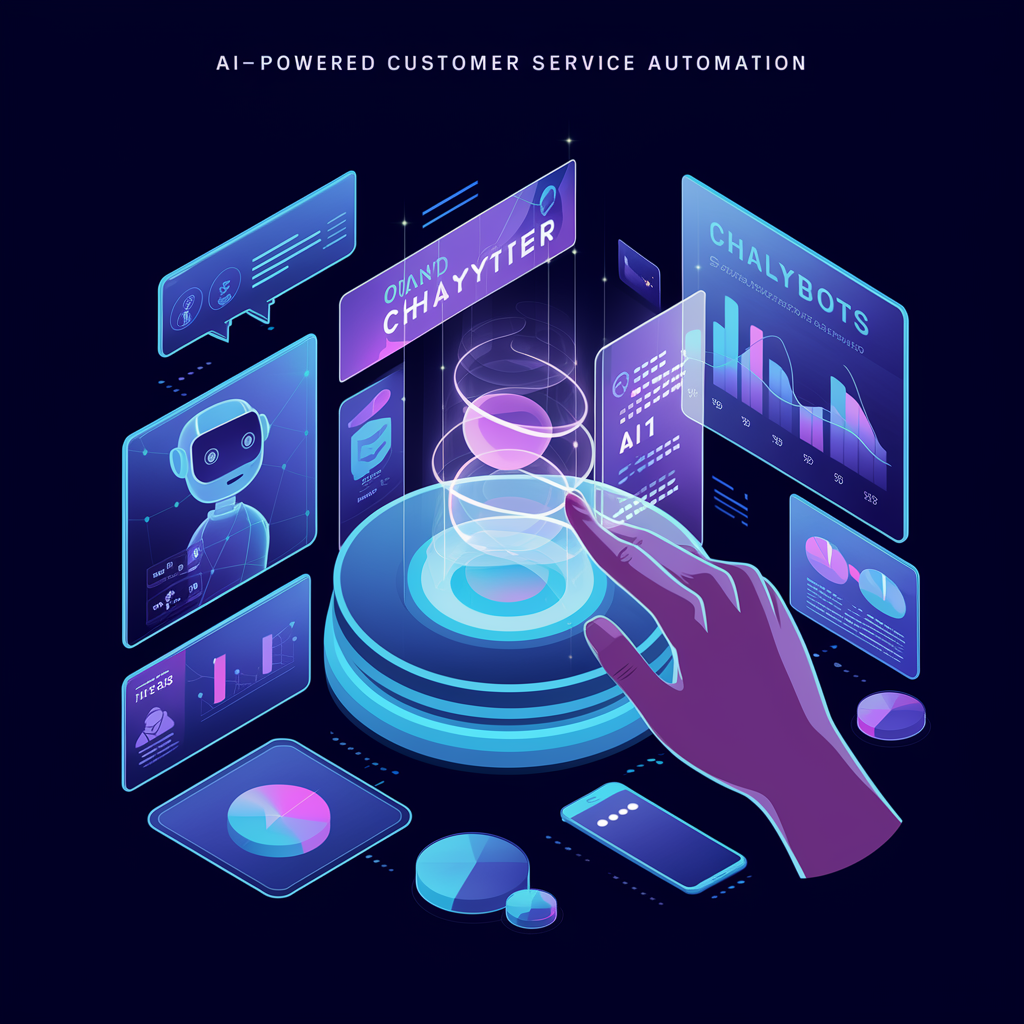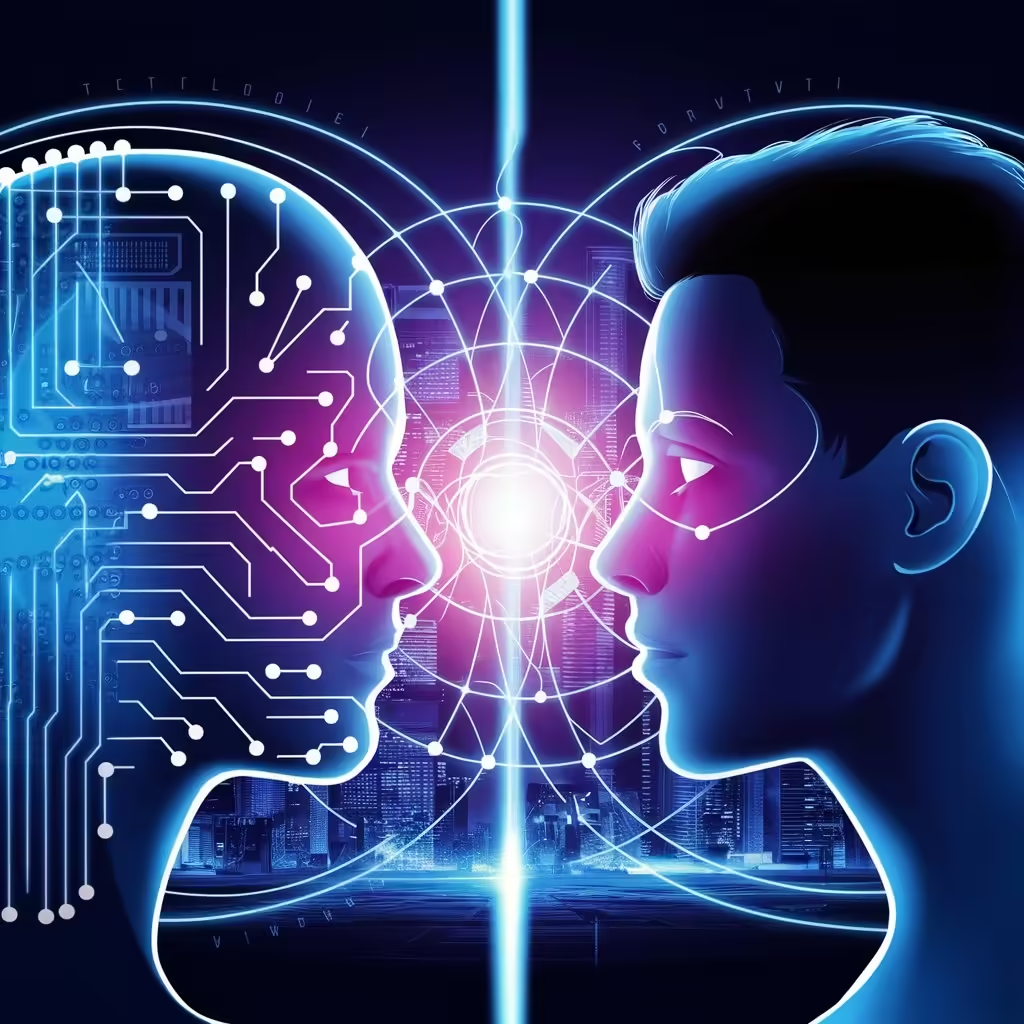As we stand on the cusp of a new era in technology, future AI trends are set to redefine the boundaries of what’s possible. Artificial Intelligence has already transformed numerous aspects of our lives, from how we work to how we communicate. However, the coming years promise even more groundbreaking developments that will reshape industries, challenge our perceptions, and open up new frontiers of innovation. In this article, we’ll explore seven cutting-edge future AI trends that are poised to revolutionize the world of technology and beyond.
Table of Contents
- Quantum AI: Unleashing Unprecedented Computational Power
- AI-Powered Emotional Intelligence: The Next Frontier in Human-Machine Interaction
- Federated Learning: Enhancing Privacy in AI Systems
- AI in Edge Computing: Bringing Intelligence Closer to Data Sources
- Explainable AI (XAI): Demystifying AI Decision-Making
- AI-Augmented Creativity: Redefining Art and Innovation
- Neuromorphic Computing: Mimicking the Human Brain
- Ethical Considerations and Challenges
- Conclusion: Embracing the AI-Driven Future
Quantum AI: Unleashing Unprecedented Computational Power
One of the most exciting future AI trends is the convergence of quantum computing and artificial intelligence. Quantum AI has the potential to solve complex problems that are currently intractable for classical computers, opening up new possibilities in fields such as drug discovery, financial modeling, and climate prediction.
Key developments:
- Quantum machine learning algorithms
- Quantum-enhanced neural networks
- Quantum-resistant cryptography
According to a report by McKinsey & Company (2023), quantum AI could create up to $850 billion in annual value by 2040.
AI-Powered Emotional Intelligence: The Next Frontier in Human-Machine Interaction
As AI systems become more sophisticated, the ability to recognize, interpret, and respond to human emotions is emerging as a crucial area of development. Emotionally intelligent AI has the potential to transform fields such as customer service, mental health support, and personalized education.
Key applications:
- Advanced sentiment analysis in social media monitoring
- Emotion-aware virtual assistants
- AI-driven therapy and counseling tools
A study published in the Journal of Artificial Intelligence Research (Sharma et al., 2023) suggests that emotionally intelligent AI could improve user satisfaction in human-computer interactions by up to 40%.
Federated Learning: Enhancing Privacy in AI Systems
As concerns about data privacy continue to grow, federated learning is emerging as a promising solution. This approach allows AI models to be trained on decentralized data without compromising individual privacy, making it particularly valuable in sensitive sectors like healthcare and finance.
Benefits of federated learning:
- Enhanced data privacy and security
- Reduced data transfer costs
- Improved model performance through diverse data sources
Research by Gartner (2023) predicts that by 2025, 50% of large organizations will implement federated learning to address privacy and data residency concerns.
AI in Edge Computing: Bringing Intelligence Closer to Data Sources
The integration of AI with edge computing is set to revolutionize how we process and analyze data. By bringing AI capabilities closer to the data source, edge AI enables faster decision-making, reduced latency, and improved efficiency in various applications, from autonomous vehicles to smart cities.
Key advantages:
- Real-time processing and analysis
- Reduced bandwidth requirements
- Enhanced data privacy and security
According to IDC (2023), the global edge AI market is expected to reach $14.5 billion by 2026, growing at a CAGR of 28.4%.
Explainable AI (XAI): Demystifying AI Decision-Making
As AI systems become more complex and influential in decision-making processes, the need for transparency and interpretability has never been greater. Explainable AI (XAI) aims to make AI algorithms more understandable to humans, fostering trust and enabling better oversight.
Applications of XAI:
- Regulatory compliance in finance and healthcare
- Debugging and improving AI models
- Building user trust in AI-driven systems
A survey by Deloitte (2023) found that 67% of executives consider explainable AI crucial for building trust in AI systems within their organizations.
AI-Augmented Creativity: Redefining Art and Innovation
The intersection of AI and creativity is pushing the boundaries of art, design, and innovation. AI-augmented creativity tools are enabling new forms of expression and helping humans enhance their creative processes across various domains.
Emerging trends:
- AI-generated art and music
- Collaborative AI tools for design and brainstorming
- AI-powered content creation and storytelling
The global market for AI in creative industries is projected to reach $5.5 billion by 2025, according to a report by Markets and Markets (2023).
Neuromorphic Computing: Mimicking the Human Brain
Inspired by the structure and function of the human brain, neuromorphic computing represents a paradigm shift in AI hardware. These brain-like chips promise to deliver significant improvements in energy efficiency, learning capabilities, and adaptability.
Potential impact:
- More efficient and adaptable AI systems
- Enhanced on-device AI capabilities
- Advancements in brain-computer interfaces
Research by IBM (2023) suggests that neuromorphic chips could be up to 1000 times more energy-efficient than traditional processors for certain AI tasks.
Ethical Considerations and Challenges
As these future AI trends continue to evolve, it’s crucial to address the ethical implications and challenges they present:
- Ensuring fairness and avoiding bias in AI systems
- Maintaining human oversight and control
- Addressing job displacement and workforce transitions
- Protecting individual privacy and data rights
A report by the World Economic Forum (2023) emphasizes the need for collaborative efforts between industry, government, and academia to develop ethical frameworks for AI development and deployment.
Conclusion: Embracing the AI-Driven Future
The future AI trends discussed in this article represent just a glimpse of the transformative potential of artificial intelligence. As these technologies continue to evolve and converge, they will undoubtedly reshape our world in ways we can scarcely imagine. From quantum computing to emotionally intelligent AI, these innovations promise to unlock new realms of possibility, efficiency, and creativity.
However, as we embrace this AI-driven future, it’s crucial to remain mindful of the ethical considerations and challenges that come with such powerful technologies. By fostering responsible development and deployment of AI, we can harness its potential to address some of the world’s most pressing challenges while ensuring that the benefits are shared equitably across society.
As we stand on the brink of these exciting developments, one thing is clear: the future of AI is not just about smarter machines, but about empowering humans to achieve more than ever before. By staying informed and engaged with these emerging trends, we can all play a part in shaping a future where AI serves as a powerful tool for human progress and innovation.
AIInDepth.com: Your go-to source for insights and trends in AI and technology.




